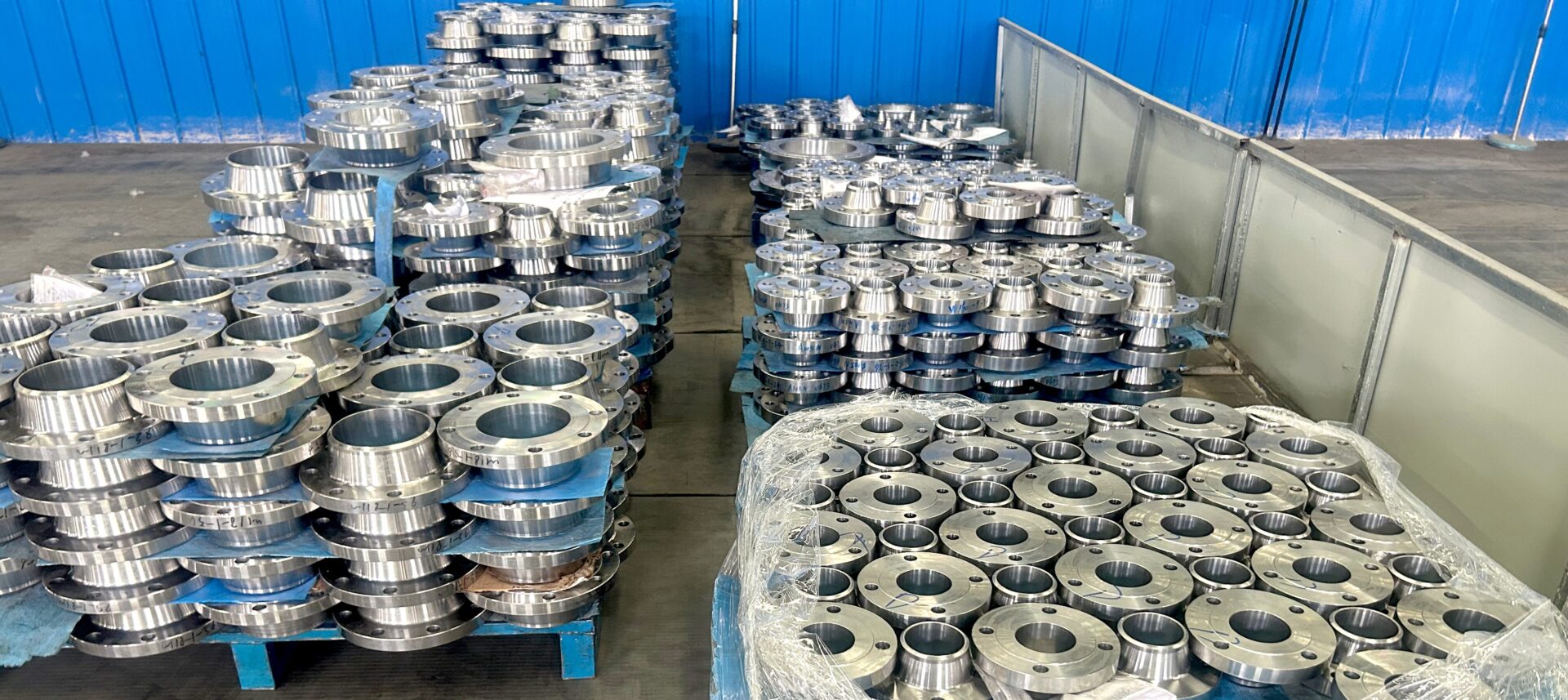Share this
Carbon steel forged fittings
Carbon steel forged fittings are essential components in various industrial applications, prized for their exceptional strength, durability, and reliability. Crafted through a meticulous forging process, carbon steel forged pipe fittings are engineered from high-quality carbon steel, ensuring resilience against corrosion, high temperatures, and pressure fluctuations, making forged carbon steel pipe fittings ideal for demanding environments such as oil refineries, chemical plants, and power generation facilities. Their forged construction enhances their mechanical properties, offering superior performance and longevity compared to cast fittings. With precise threading and dimensional accuracy, carbon steel forged fittings facilitate seamless integration into piping systems, guaranteeing tight seals and efficient fluid conveyance. From elbows and tees to couplings and unions, these fittings provide versatile solutions for connecting, redirecting, or terminating pipelines with utmost precision and safety, thereby playing a crucial role in ensuring operational efficiency and structural integrity across diverse industrial sectors. If you are interested in our carbon steel forged fittings, please contact us.
1. Carbon steel forged pipe fittings appearance
Forged carbon steel pipe fittings present a robust and industrious appearance, characterized by their solid construction and metallic sheen. Crafted through precise forging techniques, these fittings exhibit defined shapes tailored to their specific functions within piping systems, often featuring threaded or socket weld ends for secure attachment to pipes. Their surfaces may bear subtle marks indicative of the forging process, adding to their rugged aesthetic. With their durable build and precise design, carbon steel forged fittings stand as reliable components capable of withstanding demanding industrial conditions while ensuring seamless fluid conveyance.
2. Material composition of forged carbon steel pipe fittings
(1) . Carbon (C)
Carbon content is a primary factor in defining carbon steel. It typically ranges from 0.05% to 0.29% for low carbon steel and up to 2.0% for high carbon steel.
(2) . Manganese (Mn)
Manganese is often added to improve strength and hardenability. Its content can range from 0.60% to 1.65%.
(3) . Silicon (Si)
Silicon is added for deoxidation and to improve strength and corrosion resistance. Typical content ranges from 0.10% to 0.35%.
(4) . Phosphorus (P) and Sulfur (S)
These elements are usually present in small amounts, with phosphorus typically limited to 0.035% and sulfur to 0.040% to improve machinability and avoid brittleness.
3. Forging process of carbon steel forged fittings
(1) . Raw Material Preparation
The process begins with the selection of high-quality carbon steel bars or billets. These materials are inspected for any defects and then heated to the appropriate forging temperature in a furnace.
(2) . Forging
Once the steel reaches the desired temperature, it is forged into the desired shape using hydraulic or mechanical presses, hammers, or forging machines. The forging process involves applying compressive force to deform the heated steel into the desired shape, which could be elbows, tees, couplings, unions, or other fittings.
(3) . Heat Treatment
After forging, the fittings undergo heat treatment to improve their mechanical properties, such as strength and toughness. This typically involves processes such as normalizing, quenching, and tempering, which are designed to refine the microstructure of the steel.
(4) . Surface Treatment
Surface treatments such as shot blasting, pickling, or passivation may be applied to remove any surface scale, oxides, or contaminants and improve the corrosion resistance of the fittings.
(5) . Quality Inspection
Throughout the manufacturing process, quality checks are performed to ensure that the fittings meet the specified dimensional tolerances, mechanical properties, and surface finish requirements. This includes dimensional inspections, non-destructive testing (such as ultrasonic testing), and visual inspections.
4. Carbon steel forged fittings strength and durability
(1) . Material Strength
Carbon steel is inherently strong, especially when it’s forged. Forging involves shaping the metal while it’s hot, which aligns the grain structure and eliminates weak spots, resulting in fittings that can withstand high pressure and stress.
(2) . Resistance to Wear and Tear
Carbon steel forged fittings have good resistance to wear and tear, making them suitable for use in demanding environments where they may be subjected to abrasion or impact.
(3) . Corrosion Resistance
While carbon steel is susceptible to corrosion, proper surface treatments such as galvanization or coatings can enhance its resistance to rust and corrosion, improving its longevity and durability.
(4) . Temperature Resistance
Carbon steel forged pipe fittings can withstand a wide range of temperatures, from extreme cold to high heat, without compromising their structural integrity.
(5) . Reliability
Due to their strength and durability, forged carbon steel pipe fittings are reliable components in piping systems, providing long-term performance and minimizing the risk of leaks or failures.
5. Forged carbon steel pipe fittings applications
(1) . Oil and Gas Industry
Carbon steel forged fittings are widely used in the oil and gas sector for pipelines, refineries, and petrochemical plants. They are suitable for high-pressure and high-temperature environments.
(2) . Chemical Processing
In chemical plants where corrosive substances are handled, carbon steel forged pipe fittings are preferred due to their resistance to corrosion from many chemicals.
(3) . Power Generation
Forged carbon steel pipe fittings are used in power plants for piping systems that carry steam, water, or other fluids. They are suitable for high-temperature and high-pressure conditions.
(4) . Water Treatment
Carbon steel forged fittings are utilized in water treatment plants for pipelines carrying treated water, chemicals, or wastewater. They provide strength and reliability in various water treatment processes.
(5) . Shipbuilding
In shipbuilding, carbon steel forged pipe fittings are used in piping systems for fuel lines, water supply, and other applications due to their strength and resistance to corrosion in marine environments.
We Elite Piping Manufacture Co., Ltd. is a leading provider of high-quality piping solutions, specializing in the manufacture and distribution of carbon steel forged fittings for various industrial applications. With a commitment to excellence, Elite Piping delivers superior products known for their durability, strength, and reliability, meeting the stringent requirements of industries such as oil and gas, chemical processing, power generation, and more. Through innovative manufacturing processes and stringent quality control measures, Elite Piping ensures that their fittings consistently meet and exceed industry standards, making them a trusted partner for piping solutions worldwide.

